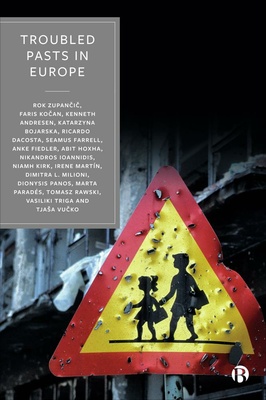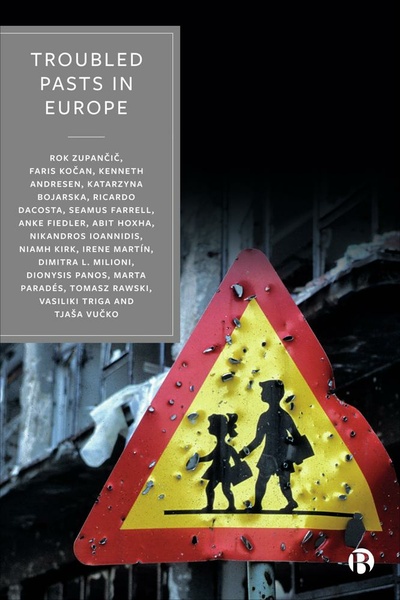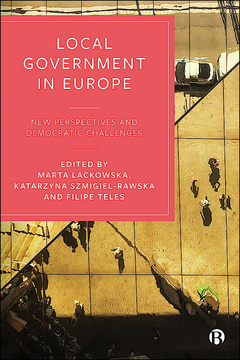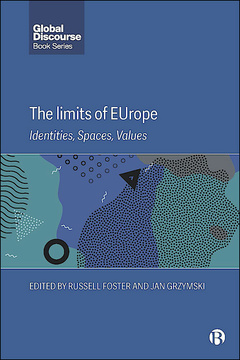Troubled Pasts in Europe
Strategies and Recommendations for Overcoming Challenging Historic Legacies
By Rok Zupančič, Faris Kočan, Kenneth Andresen, Katarzyna Bojarska, Ricardo Dacosta, Seamus Farrell, Anke Fiedler, Abit Hoxha, Nikandros Ioannidis, Niamh Kirk, Irene Martín Cortes, Dimitra L. Milioni, Dionysis Panos, Marta Paradés Martín, Tomasz Rawski, Vasiliki Triga and Tjaša Vučko
Published
Sep 29, 2023Page count
240 pagesISBN
978-1529233629Dimensions
234 x 156 mmImprint
Bristol University PressPublished
Sep 29, 2023Page count
240 pagesISBN
978-1529233636Dimensions
234 x 156 mmImprint
Bristol University PressPublished
Sep 29, 2023Page count
240 pagesISBN
978-1529233636Dimensions
234 x 156 mmImprint
Bristol University PressBased on the findings of a major research project, this book investigates how European societies confront their troubled pasts today.
In particular, the text explores what kinds of measures can be taken and which strategies endorsed to facilitate the process of overcoming difficult historic legacies in seven European states: Kosovo, Bosnia and Herzegovina, Germany, Ireland, Spain, Cyprus and Poland. The book is written by an international team of experts and examines strategies and actions in both policy making and civil society of European countries, as well as throughout the EU as a collective.
“This book and the policy recommendations within represent a rare case of comparative research that includes European countries with very different historic, democratic and war-related experiences.” Višeslav Raos, University of Zagreb
Rok Zupančič is Associate Professor of Security Studies at the University of Ljubljana, Faculty of Social Sciences. Currently, he leads the research project Anxious Peace, which aims at answering the question of how to reduce the ethnic distance between the people previously involved in armed conflicts by using a novel interdisciplinary approach at the nexus of peacebuilding studies, social psychology, neurobiology, and body-oriented somatic techniques.
Faris Kočan is Assistant Professor at the University of Ljubljana, Faculty of Social Sciences. His research is focused on the Europeanisation of the Western Balkans and the role of the European integration in addressing the troubled past of post-Yugoslav space.
Kenneth Andresen is Professor of Media Studies at the University of Agder. He holds a PhD in Journalism and Media Studies from the University of Oslo. His current research interests are within transitional journalism, conflict history, and historical postcards.
Katarzyna Bojarska is Assistant Professor in the Department of Cultural Studies of the SWPS University in Warsaw.
Ricardo Dacosta is a pre-doctoral researcher in the Department of Political Science and International Relations at the Universidad Autónoma de Madrid. He holds a master's degree in Political Analysis from the University of Barcelona.
Seamus Farrell holds a PhD from Dublin City University (DCU) on the topic of ‘A Political Economy of Radical Media’. In addition to research on radical media and politics, Seamus is interested in critical perspectives on Irish development, having worked on the RePast – Revisiting the Past, Anticipating the Future.
Anke Fiedler is a communication historian at the Department of Media and Communication at the Ludwig-Maximilians-Universität. Her research focuses on the memory of National Socialism and Communism in Germany.
Abit Hoxha is Assistant Professor at the Institute for Nordic and Media Studies at the University of Agder. He is a PhD candidate at the Ludwig Maximilians University in Munich. His current research interests (and projects) are within the field of conflict news production, transitional journalism, media, democracy and dealing with the troubled past.
Nikandros Ioannidis is a PhD student at Pompeu Fabra University. His doctoral research is related to political representation. He holds a master's degree in Democracy and Comparative Politics from UCL.
Niamh Kirk is Lecturer in Data Journalism and Social Media in the Department of Journalism, University of Limerick.
Irene Martín is Associate Professor in the Department of Political Science and International Relations at the Universidad Autónoma de Madrid. Her main lines of research deal with elections, political parties and political culture and legacies of the past.
Dimitra L. Milioni is Associate Professor of Media Studies at Cyprus University of Technology. Her research interests lie in alternative media, communication technologies, protest, conflict, and critical data/algorithm studies.
Dionysis Panos is Assistant Professor in the Department of Communication and Internet Studies, Cyprus University of Technology. His recent research work focuses mainly on social media and Web communication, Misinformation and ‘Memory Construction’, Digital Archiving
and Algorithmic Memory and Digital Oral History.
Marta Paradés is Adjunct Professor at Comillas Pontifical University and postdoctoral researcher at the University Carlos III of Madrid and at the Autonomous University of Madrid.
Tomasz Rawski is Assistant Professor in the Faculty of Sociology, University of Warsaw. He is a political and cultural sociologist focused on researching memory politics, nationalism/war, and state socialism in contemporary Eastern Europe and beyond.
Vasiliki Triga is Associate Professor in the Department of Public Communication at Cyprus University of Technology. She holds a Ph.D degree in Social and Political Sciences from the European University Institute in Florence. She has published in various journals such as Southern European Society and Politics, Journal of Common Market Studies, Public Management, IEEE Transactions on Cybernetics, etc.
Tjaša Vučko is a PhD student of Balkan Studies at the University of Ljubljana, Faculty of Social Sciences. Her doctoral research is focused on everyday peacebuilding with special emphasis on non-war communities.
1. Introduction
2. Methodology: From Research Results to Recommendations
Part I: Non-EU Member States
3. Bosnia and Herzegovina: from Coexistence to Unresolvable Past?
4. Kosovo: Troubled Past and Its Path to Moving On
Part II: EU Member States
5. Germany: The Wall is Dead, Long Live the Wall!?
6. Ireland Beyond Ethnopolitics: Recommendations for all Island Integration
7. Spain: How to Overcome the Polarization about the Conflicts of the Past?
8. Cyprus: The EU's Role in Europe's Last Divided Country
9. Poland: Strategies for Challenging the Growing Dominance of Right-wing Memory Politics
10. The European Union
11. Conclusion











